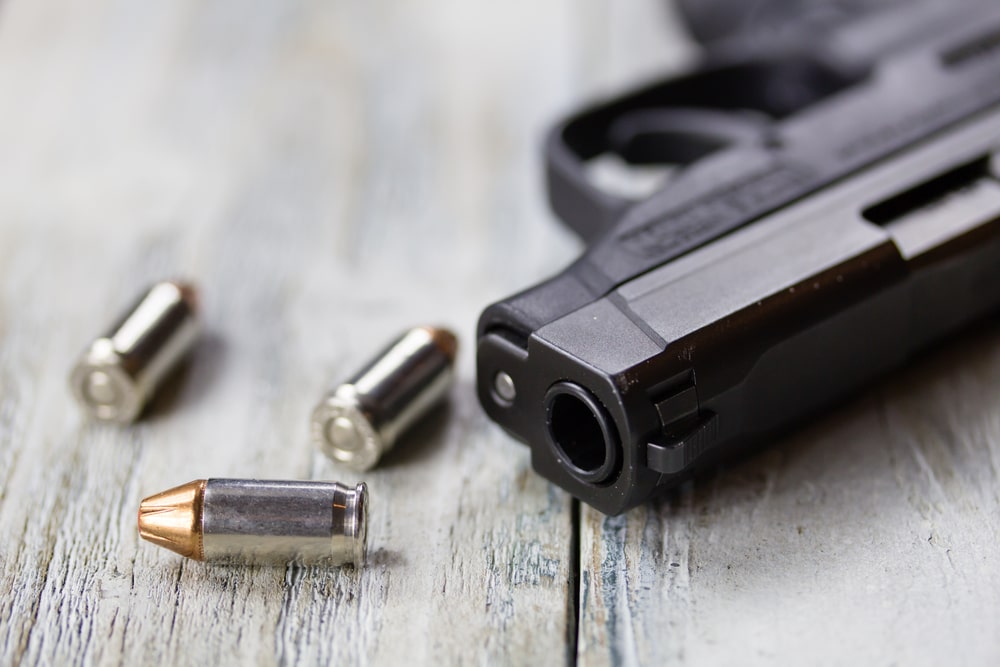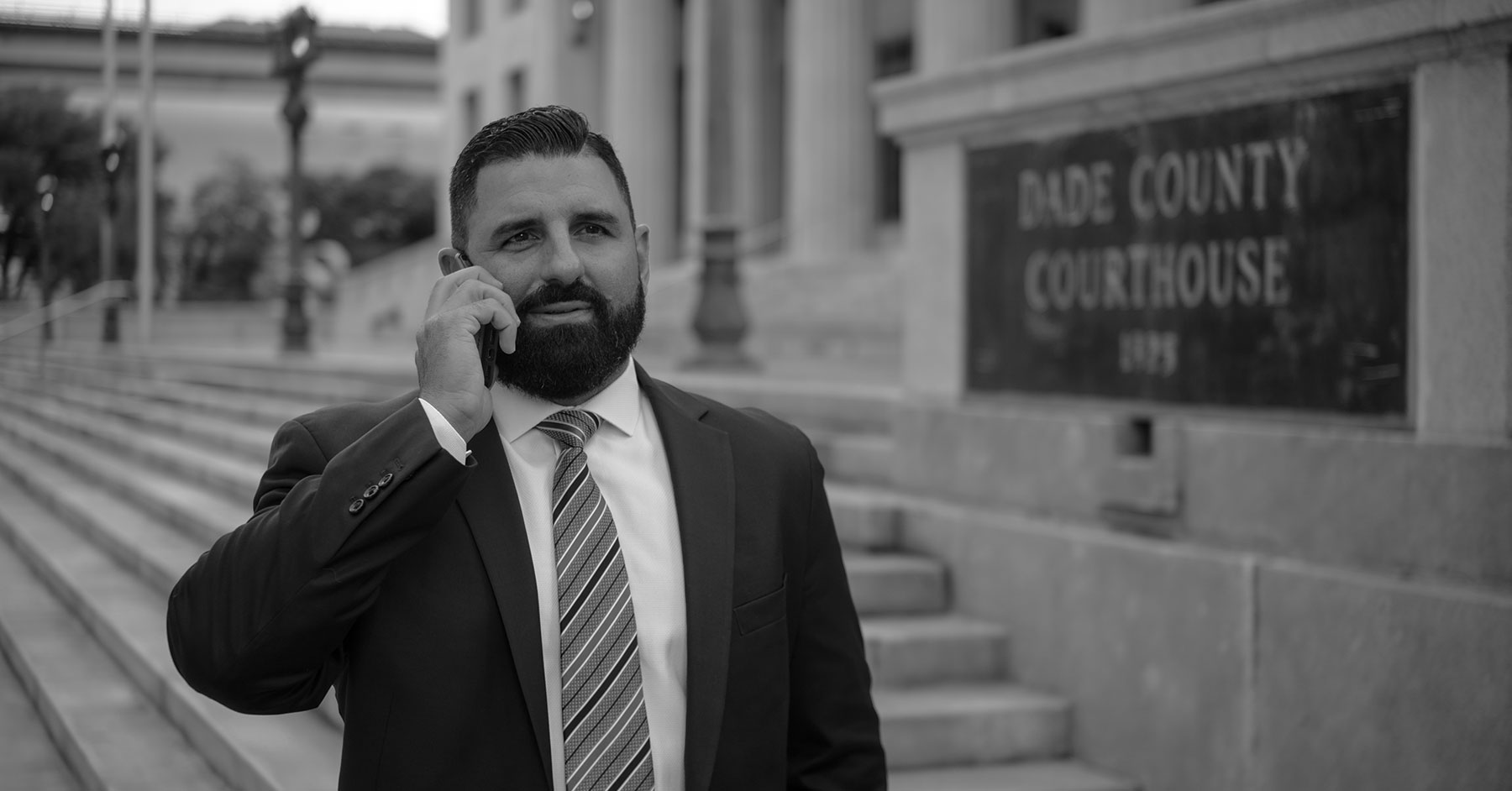Possession of a Firearm by a Convicted Felon in Florida

Felony convictions at the state or federal level carry harsher penalties than misdemeanor convictions and generally include long stretches of time in prison. They also result in additional restrictions after the penalty is served.
For instance, gun ownership for a convicted felon is illegal in Florida. So, if a felon is found with a gun or certain other weapons in his/her possession, a charge of possession of a firearm by a convicted felon may be filed and further harsh penalties including prison time will await the offender.
However, despite the gravity of the situation, several valid defenses are available to felons charged with gun possession. Discussing your case with an experienced defense attorney is the first step to addressing this predicament.
Can convicted felons possess any type of gun in Florida?
In Florida, a convicted felon is any individual who has been found guilty of a criminal offense punishable by more than one year of imprisonment.
Florida Statute § 790.23 states the following for anyone convicted of a felony in the state:
“It is unlawful for any person to own or to have in his or her care, custody, possession, or control any firearm, ammunition, or electric weapon or device, or to carry a concealed weapon, including a tear gas gun or chemical weapon or device…”
The firearm prohibition includes ammunition (bullets, gunpowder, etc.), metallic knuckles, knives, batons, electric weapons and more besides guns. It also covers anyone convicted of a felony in any other state and found to be carrying a gun in the state of Florida.
What does “possession” mean?
With a charge of possession of a firearm by a felon, what actually constitutes possession? This needs a little explanation…
Actual and constructive possession
Actual possession occurs when an individual has physical control over a firearm. For instance, the gun is in his/her hand.
Constructive possession is when the firearm is located in a place over which the felon has “control.”
It is important to be aware of the differences between the two because the type of possession outlined in the charge will affect the possible defenses available to a criminal defense lawyer as well as the potential punishments associated with a conviction.
What is considered sufficient evidence of possession?
Proximity to the firearm alone is not considered sufficient evidence of constructive possession. Law enforcement must be able to prove that the defendant knew where the weapon was and could access it to show that he/she had control over it.
Possession of a firearm can be joint as well as exclusive, i.e., two or more persons can jointly possess a gun and exercise control over it. Each individual is then considered to be in possession of the firearm.
Generally speaking, if the individual has exclusive possession of a firearm, it is presumed that he/she knew of its presence. If possession of the firearm is not exclusive, the same presumption cannot be made.
Possession of a firearm by a felon: example case
In a much-cited case in Florida from 2007, a man was found guilty by a jury of possession of a firearm or ammunition by a convicted felon.
At the time of arrest, the defendant was in a rented car and law enforcement found the following:
- A handgun protruding from the passenger seat (the defendant was in the driver’s seat)
- Ammunition in the glove box and the trunk
- A rifle in the trunk
The prosecution argued that it was constructive possession because the firearm was found in a rented car and the defendant had control over it even though it was not in his hand at the time of arrest.
An appeal against the conviction was lodged and it was reversed because the state did not provide enough evidence tying the defendant to the guns and ammunition.
Penalties for possession of a firearm by a felon in Florida
In Florida, possession of a firearm by a convicted felon is considered a second-degree felony. It is assigned a Level 5 offense severity ranking under Florida’s Criminal Punishment Code.
This means that actual possession or constructive possession of a firearm can lead to the following penalties:
- Up to 15 years of imprisonment
- Up to 15 years of probation
- A fine of up to $10,000
A three-year mandatory minimum sentence applies for felons found in actual possession of a firearm meaning that a judge must impose at least this sentence for a conviction.
The crime can also be elevated to a first-degree felony (with a maximum sentence of life imprisonment) if the offense was committed to benefit or promote a criminal gang.
What is a 922(g) charge in Florida?
Possession of a firearm by a convicted felon is a criminal offense under both state and federal laws. So, felons are prohibited from carrying firearms, ammunition, or other deadly weapons under federal law as well as Florida law.
Federal law has a similar definition for felons as state law: any individual convicted in any court for a crime punishable by more than one year of imprisonment.
A federal 922(g) charge can be filed against any felon (or person convicted of domestic violence) who possesses a gun. Punishments include up to 10 years in federal prison.
Additionally, under federal law, defendants with three prior convictions for a violent felony or a serious drug offense must serve a minimum of 15 years imprisonment.
Possession of a firearm by a convicted felon is very serious whether charged under state or federal law but if you are arrested by a federal law enforcement agency arrested, the potential consequences are even more severe.
What defenses are available for possession of a firearm by a convicted felon?
The main defenses available to criminal defense lawyers in cases of possession of a firearm by a convicted felon are:
- Type of possession: actual possession vs. constructive possession
- Not a felon: the person charged was not a convicted felon at the time of the charge
- Unlawful search or seizure: law enforcement violated the constitutional search and seizure rights of the accused
- The firearm or weapon found is not covered by the legislation
Another specific defense is available for the crime of possession of a firearm by a convicted felon. This is the restoration of civil rights with firearm authority.
An individual who has had his/her civil rights and firearm authority restored cannot be convicted of possession of a firearm by a convicted felon. It is, however, relatively unusual for a convicted felon to have the right to possess a firearm restored.
Being charged with possession of a firearm by a convicted felon does not necessarily mean a return to prison. Many cases are thrown out for lack of evidence and a seasoned criminal defense lawyer may be able to build a strong case that calls key evidence into question.
If you’re in Miami, FL, contact us online or by phone at (305) 403-7323 for a free initial consultation with a skilled criminal defense lawyer.

